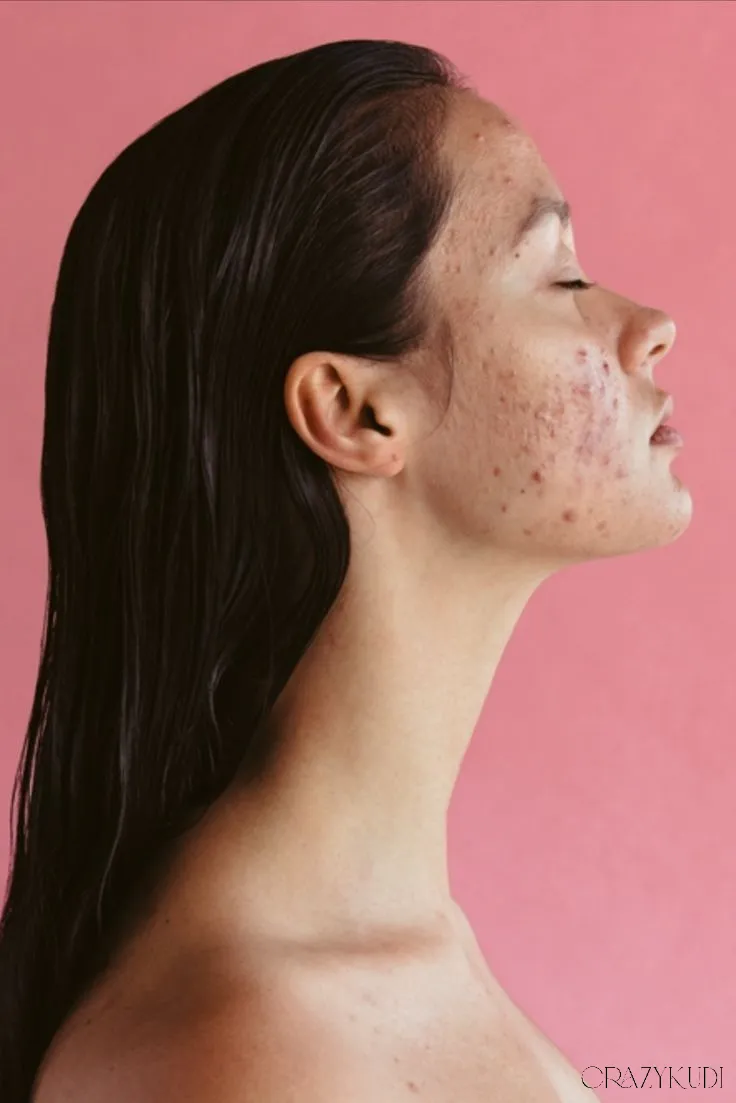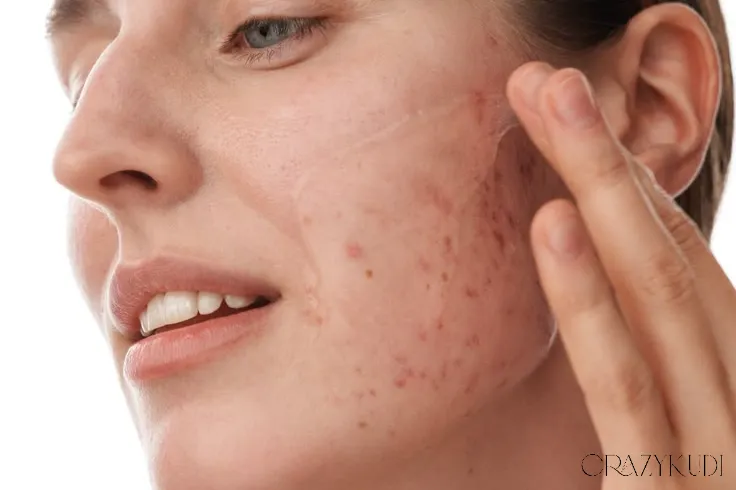Nodular acne is one of the most severe and painful forms of acne, causing large, hard, and often deeply inflamed bumps beneath the skin's surface. Unlike common pimples or blackheads, nodular acne is typically cystic, swollen, and can cause significant discomfort. The bumps can take longer to heal and are more prone to scarring if not treated correctly.
If you’ve been struggling with nodular acne, you may be wondering what the best treatment options are. As a dermatologist, I understand that treating nodular acne requires a multifaceted approach, often combining topical, oral, and even professional therapies. Here’s a rundown of the most effective treatment options available for nodular acne.
1. Topical Treatments
For mild to moderate cases of nodular acne, topical treatments can be effective in controlling inflammation and bacteria. The following are some of the most widely recommended topical treatments:
- Topical Retinoids (Retinol, Adapalene, Tretinoin): Retinoids are vitamin A derivatives that help to speed up skin cell turnover, preventing clogged pores and reducing inflammation. They are among the most effective treatments for acne and can improve the appearance of acne scars over time. Adapalene (Differin) is available over-the-counter, while stronger retinoids like tretinoin require a prescription.
- Benzoyl Peroxide: Benzoyl peroxide is a potent acne treatment that kills the acne-causing bacteria and reduces inflammation. It is typically used in conjunction with other acne treatments for more significant results. PanOxyl Acne Foaming Wash, containing 10% benzoyl peroxide, is one of the strongest over-the-counter options.
- Salicylic Acid: This beta-hydroxy acid exfoliates the skin, helping to prevent clogged pores. While salicylic acid is more commonly used for whiteheads and blackheads, it can help with inflamed acne lesions as well. Look for cleansers, toners, or spot treatments that contain 2% salicylic acid.
2. Oral Antibiotics
For moderate to severe nodular acne, oral antibiotics can be used to reduce inflammation and control bacteria on the skin. These medications are particularly helpful when topical treatments alone are not sufficient.
- Doxycycline and Minocycline are the most commonly prescribed oral antibiotics for acne. They help to reduce the bacteria that contribute to acne and also have anti-inflammatory effects.
Note: Antibiotics are typically used for short-term management and should be combined with other treatments to avoid antibiotic resistance.
Also read: 10 Pain Relief Tips for Nodular Acne
3. Oral Contraceptives (For Women)
For women whose nodular acne is hormonally triggered (often occurring around menstruation), oral contraceptives (birth control pills) can help regulate hormonal fluctuations that contribute to acne. Birth control pills that contain drospirenone (such as Yaz or Beyaz) are particularly effective for acne treatment because they reduce the amount of androgens, hormones that stimulate oil production in the skin.
If you suspect your acne may be hormonal, consult with your dermatologist about whether birth control pills could be a beneficial treatment option.
4. Isotretinoin (Accutane)
Isotretinoin, also known as Accutane, is a powerful oral medication used for severe nodular acne that hasn’t responded to other treatments. Isotretinoin works by significantly reducing oil production, helping to clear existing acne and prevent new breakouts. It also reduces inflammation and promotes skin cell turnover, which helps heal cystic acne lesions.
Isotretinoin is highly effective but comes with potential side effects, including dry skin, lips, and eyes, and, in rare cases, more serious risks like liver damage or mood changes. Women must be on strict birth control during isotretinoin treatment due to the high risk of birth defects.
For those with severe or persistent nodular acne, isotretinoin can be a game-changer, offering long-term clearance after one or more courses of treatment.
5. Chemical Peels
Chemical peels use acid solutions to exfoliate the skin, helping to remove dead skin cells and reduce acne lesions. They can also stimulate collagen production, improving the skin’s texture and reducing the appearance of scars left behind by nodular acne.
For those with severe acne, salicylic acid peels or glycolic acid peels are commonly used. Peels should be performed by a trained dermatologist or licensed aesthetician to avoid complications, particularly with more sensitive skin.

6. Light and Laser Therapy
For individuals whose acne is resistant to traditional treatments, laser and light therapies offer alternative options for clearing nodular acne and reducing scarring.
- Blue light therapy (which targets acne-causing bacteria) and red light therapy (which reduces inflammation) can be used together to treat inflammatory acne.
- Pulsed-dye lasers can help reduce redness and improve the appearance of acne scars, while fractional CO2 lasers can improve skin texture and reduce deep scarring from severe acne.
These treatments often require multiple sessions and can be used in combination with other acne therapies.
7. Cortisone Injections
For large, painful nodules that are not responding to other treatments, cortisone injections may be an option. A dermatologist can inject a small amount of corticosteroid directly into the nodule to reduce inflammation and swelling. This treatment can quickly flatten painful nodules and help them heal more effectively.
Cortisone injections are typically used for individual nodules and provide immediate relief. However, they are not a long-term solution for managing ongoing acne.
8. Acne Scar Treatments
Once the acne has cleared up, acne scar treatments such as microneedling or laser resurfacing may be necessary to help improve skin texture and reduce the appearance of scars left by deep nodules. These treatments work by stimulating collagen production and encouraging the skin to heal more effectively.
9. Diet and Lifestyle Adjustments
While diet alone won’t cure nodular acne, making certain adjustments can help reduce inflammation and improve overall skin health. Some acne sufferers find that avoiding dairy and high-glycemic foods (like sugary snacks and white bread) can reduce the severity of their acne. Additionally, maintaining a healthy diet rich in antioxidants, omega-3 fatty acids, and vitamins A and C can promote skin healing.
Regular exercise can also help improve circulation and reduce stress, which is often a trigger for acne flare-ups.
Also read: Ask the Expert: 8 Questions to Ask About Treatment Options for Nodular Acne
10. Professional Advice and Ongoing Care
The best way to determine the most effective treatment for nodular acne is by consulting with a dermatologist. A dermatologist can assess the severity of your acne and recommend a customized treatment plan, which may involve a combination of topical treatments, oral medications, and professional therapies.
With professional guidance and the right combination of treatments, nodular acne can be managed effectively, reducing both pain and scarring.
Final Thoughts
Nodular acne can be challenging to treat, but with the right approach, it’s entirely possible to clear up. From topical treatments and oral medications to laser therapies and isotretinoin, there are a variety of effective treatment options available. If you’re struggling with nodular acne, I highly recommend consulting with a dermatologist to explore your best treatment options and start your journey toward clearer skin.

